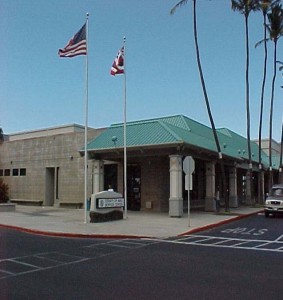Ask the Mayor: Residents Denied Circuit Breaker Tax Credit
The mayor answers questions from the public in this series.
By Mayor Alan Arakawa
Q: Would you be kind enough to explain why the Circuit Breaker Tax Credit is being denied to residents who serve to bolster the county economy?
Our Circuit Breaker Application has been denied by the Real Property Tax Collections Section because “it does not meet the statutory requirements of the current circuit breaker credit ordinance” in that our property “is not the only property owned by any of the titleholders on Maui, in Hawai‘i, in another state or territory, or in a foreign country.”
In fact, our second property is a condominium unit presently rented on a long-term basis which we will occupy if we become unable to manage the house that is presently our principal residence and the object of the denial. The revenue derived, combined with our social security benefits, allow us to live a more comfortable retirement. It appears unfair and discriminatory that residents who have invested in real property that is not real estate, or in intangible, monetary or other assets that do not serve to bolster the Maui economy are unfairly allowed to continue to benefit from the circuit breaker credit.
The Statutory Requirements further discriminate in that they single out owners who have a second property versus those whose property includes an ‘ōhana unit. Is an ‘ōhana unit not in fact a second property? Thank you in advance for your response.
A: If you were denied when previously you received the Circuit Breaker tax credit, your application has been kept on file and may be reconsidered pending changes currently being discussed by the County Council.
If you did not apply because it seemed like you would not qualify, you can apply until Sept. 15, 2014 to be considered if the recently proposed changes are approved.
The Budget and Finance Committee recently passed new revisions to the Circuit Breaker credit that will be heard soon by the full Council. There are several major problematic requirements that were enacted in 2013 by the Council in an attempt to weed out homeowners who were legally receiving the tax credit even though they had ample resources to pay their tax.
However, the Council’s changes also served to disqualify a number of our senior citizens and others living on fixed incomes who then became ineligible for the Circuit Breaker. Because I felt there were flaws in the Council’s bill, I issued a veto which the members chose to override. During the year the changes were in place, many people who had previously received the tax credit were disqualified.
The Council is now making further amendments in an effort to “fix” the tax credit. The Circuit Breaker is not an exemption, it is a monetary credit that reduces qualified homeowners’ property taxes due, based on the owners’ adjusted gross income. The revisions to the circuit breaker program are intended to grant Circuit Breakers credits to homeowners who truly do not have the ability to pay their fair share of property taxes.
When the Circuit Breaker was created, it was intended to assist homeowners who are unable to pay their property taxes due to escalating land values. Circuit breaker credits are supposed to help homeowners keep their home, not to help them maintain a “comfortable” lifestyle. Regarding the ‘ōhana unit issue, technically an ‘ōhana unit, like a detached cottage, is considered an accessory dwelling that is part of the main property, not a second property.
Q: I am wondering if there’s anything that can be done about uninhabitable homes due to fire. Whose responsibility is it to have these demolished? How can we protect our home’s resale value if these are allowed to remain in the state they are currently in and also protect our neighborhoods from the blight it attracts? Same thing with dumped automobiles left long ago in open lots, rusted out and attracting trash and homeless encampments?
A: Issues such as these – burnt homes that have become eyesores; abandoned vehicles and homeless encampments in abandoned buildings—are complaint-driven. This means that the county responds to complaints generated by the public through the Request For Service (RFS) system. In the case of a home that was destroyed by fire, there may be numerous reasons that the structure remains standing for a period of time, such as insurance processing or appeals, investigations or even legal proceedings. In general, the county tries to work with property owners to resolve the problem, especially if a building has been deemed unsafe. Sometimes an owner says they do not have enough money to tear down the unusable building, or that they are waiting to claim insurance money to pay for the demolition.
Q: When will the sidewalk from Kihei to Wailea be completed? It is poorly lit at night and dangerous to walk on the narrow unpaved path.
A: The project is currently being designed, and our Public Works Department anticipates having it go out to bid soon with a contract awarded by the end of this year. Construction would most likely be completed by spring of 2015.
Want to Ask the Mayor?
Submit your questions about County of Maui programs, services, operations or policies to Mayor Alan Arakawa via email: AskTheMayor@mauicounty.gov, phone: 270-7855 or mail: 200 S. High Street, 9th Floor, Wailuku, Hawaii 96793. Questions submitted will be considered for inclusion in the Ask the Mayor column.









